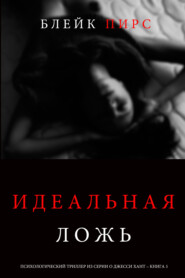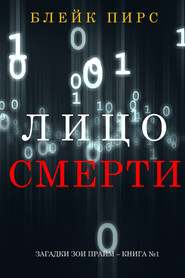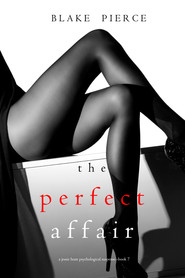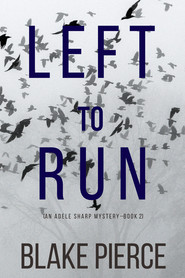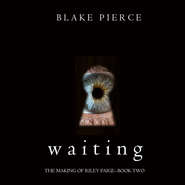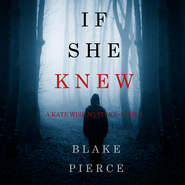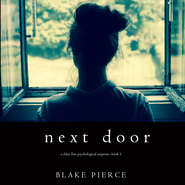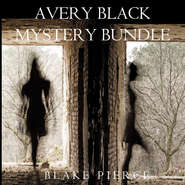По всем вопросам обращайтесь на: info@litportal.ru
(©) 2003-2024.
✖
Left To Die
Настройки чтения
Размер шрифта
Высота строк
Поля
“DGSI doesn’t know?”
“Great rehashing.”
“My point,” he said with a sniff, “is that perhaps Interpol might have a clue. America and France aren’t the only places with records of tox screens or chemicals.”
Adele glanced to John, her eyes widening. “Do you think Interpol will help?”
John smirked. “DGSI has a great relationship with Interpol, unlike the US. Besides, their headquarters are in Lyon—it’s not far from here.”
Adele tapped her fingers against the folder, her excitement mounting. “Genius. If we can find out where he’s getting that drug, we might be able to find out where he’s from.”
“I thought you said he was from France,” said John, frowning.
Adele placed the folder back on the desk and turned, heading toward the door once more. She could feel exhaustion still pressing down on her like a blanket, trying to smother her. Her morning run loomed large in her mind, and she shuddered at how she would feel when the wake-up call came for her in her hotel room. Still, if John was right, and Interpol could identify the substance, it would clear things up.
“I thought he had to be, at first,” said Adele. “But what if he’s not from the US or France? What if he’s a vacationer? We didn’t consider that. What if he’s from somewhere else, and what if that’s where he’s getting the substance from?”
John tried to hide it, but he looked impressed, if only for a split second.
She patted him firmly on the arm. “Good idea, grab the report, we can fax it over from my office.”
John shook his head and waved at her. “No need. I have an old military buddy who works there. I’ll give him a call—send a picture of the report. Give me a second.”
Adele felt a surge of gratitude toward her partner, which she hadn’t felt up to this point. Perhaps he wasn’t as disinterested and useless as she’d first thought.
It took a couple of moments, but after a murmured phone call and some legally questionable pictures of the document, John turned back to her, clicking his phone off. “They’re on it,” he said.
“How good is this friend of yours?”
John shrugged. “I saved his life, twice. He saved mine three times. You could say we’re close.”
“No—I mean how good is he at his job? He works in the lab?”
John smirked as if sharing a secret joke with someone not in the room. “No, he works at Interpol. He wouldn’t know a chemistry set from a distillery. But they’ll do what he says.”
John turned and exited his office with Adele, locking the door behind him. “I’ll drive you back to your hotel,” he said.
Adele shook her head. “Not after four drinks you won’t.”
He groaned and complained, but Adele stood her ground, and, at last, he relented.
“Fine, here are the keys,” he said, tossing them to her. His aim was just a bit off, and the keys scraped against the wall, leaving a small gash in the paint. He groaned and began to walk down the hall, back toward the stairs.
“You need me to drop you off?” she called after him.
He waved a dismissive hand. “Sleep downstairs.”
She pictured the small interrogation room with the couch and the TV.
It was an oasis in a place like this. But it also held a sadness. She wanted to protest, but then thought better of it. Perhaps John didn’t have anyone to go to. Back in San Francisco, Agent Grant Lee often slept at the office.
Adele took the keys and hurried toward the elevator. She was sick of stairs.
The toxicology report would be the key. As smart as the killer thought he was, she was getting closer; she could feel it.
CHAPTER SIXTEEN
The cool breeze introduced itself to the night with gentle swirls, brushing against leaves and sidling along buildings down the cramped street. Enes made his way, stumbling a bit on the stone curb. In the distance, he spotted a police car pulling by, lights flashing.
The man puffed his cheeks, breathing in quiet relief. “Stupid Peter,” he murmured. He was glad he’d turned down the ride from his dorm mate—five drinks in and still behind the wheel.
Still, prudent decisions did little to stave off a nip in the air, and the young man wished he’d brought a jacket. He’d left his umbrella back in Peter’s car, but thankfully the rain seemed to have stopped, at least for the hour. He shivered, rubbing at his arms as he made his way along the street.
Enes glanced back in the direction of the bar and blearily surveyed the glowing orange and yellow lights emanating from the streaked windows. He could hear the raucous cries of people reacting to the football match, and, perhaps, to the magician. It hadn’t been a very good magician. The trick with those twenty-three cards had been easy enough to spot. An engine, in statistical parlance, where no matter what, a chosen card would be revealed after a series of mathematical estimations.
The university student shook his head and pulled his shirt collar over his ears for a bit of warmth. He rubbed his arms a second time.
Normally, walking through the parks at night, especially in Paris, was an ill-advised option. But it was just so cold. He didn’t want to circle the park to reach his dormitory. Besides, it wasn’t like he was some defenseless child, worried about being attacked. He could take care of himself.
Enes jutted his chin forward and nearly slipped off the curb as he took another step. Quickly, with a spring, he righted himself, testing his suspect foot. He winced.
Through the tingling pain, Enes paused, teeth still clenched. Behind him, for a moment, he thought he heard footsteps.
Uttering a string of expletives, he glanced back, but spotted no one.
The row of parked cars glinted beneath the moon, winking ominously at him. Still cursing, he jerked his foot back onto the sidewalk, testing it gingerly. Then, with added respect toward the alcohol cycling his system, he began to move toward the park.
There had been a killing in Paris not long ago. It had made the news. But it was on the opposite side of the city, nearly an hour and a half away in bad traffic. He figured he would be fine.
Enes reached the park and scanned the darkness. Safety lights flanked the trails, illuminating the waving trees and the vegetation responding to the influence of the wind.
He wished he’d carried a knife. Still, it was only a short walk to the other side of the park, and then he’d be within sight of his dormitory.
Again, for a moment, he had the uncanny feeling of being watched. The back of his neck prickled, and he turned, peering across the park once more.
Still, he spotted no one. For the faintest of moments, he reconsidered the trip through the park. The place was notorious for muggings and worse, but even muggers didn’t like the rain.
Enes lowered his head and began to limp through the park, keeping quiet, his arms at his side, as if presenting as small a target as possible would allow him safe passage beneath the shadowed trees.
At this point, everything seemed quieter. Living in a city like Paris—a beautiful, messy, loud city—one could forget what quiet was. Even at night, the sound of passing cars and the noise from the apartments or bars would taint the air. The park, though, while not entirely removed, was still spacious enough and serene enough that Enes thought he could pick up the quiet buzz of the safety lights.
Then he heard footsteps.
A chill crept up his spine, prodding at him like fingers of ice. He turned sharply and spotted someone coming rapidly toward him.
For a moment, he felt a flood of fear. He tried to break into a sprint, but found his twisted ankle wouldn’t hold his weight. He stumbled and quickly righted himself, turning once more to face the oncoming person.
As the stranger in the dark drew nearer, Enes’s breathing eased.
“Great rehashing.”
“My point,” he said with a sniff, “is that perhaps Interpol might have a clue. America and France aren’t the only places with records of tox screens or chemicals.”
Adele glanced to John, her eyes widening. “Do you think Interpol will help?”
John smirked. “DGSI has a great relationship with Interpol, unlike the US. Besides, their headquarters are in Lyon—it’s not far from here.”
Adele tapped her fingers against the folder, her excitement mounting. “Genius. If we can find out where he’s getting that drug, we might be able to find out where he’s from.”
“I thought you said he was from France,” said John, frowning.
Adele placed the folder back on the desk and turned, heading toward the door once more. She could feel exhaustion still pressing down on her like a blanket, trying to smother her. Her morning run loomed large in her mind, and she shuddered at how she would feel when the wake-up call came for her in her hotel room. Still, if John was right, and Interpol could identify the substance, it would clear things up.
“I thought he had to be, at first,” said Adele. “But what if he’s not from the US or France? What if he’s a vacationer? We didn’t consider that. What if he’s from somewhere else, and what if that’s where he’s getting the substance from?”
John tried to hide it, but he looked impressed, if only for a split second.
She patted him firmly on the arm. “Good idea, grab the report, we can fax it over from my office.”
John shook his head and waved at her. “No need. I have an old military buddy who works there. I’ll give him a call—send a picture of the report. Give me a second.”
Adele felt a surge of gratitude toward her partner, which she hadn’t felt up to this point. Perhaps he wasn’t as disinterested and useless as she’d first thought.
It took a couple of moments, but after a murmured phone call and some legally questionable pictures of the document, John turned back to her, clicking his phone off. “They’re on it,” he said.
“How good is this friend of yours?”
John shrugged. “I saved his life, twice. He saved mine three times. You could say we’re close.”
“No—I mean how good is he at his job? He works in the lab?”
John smirked as if sharing a secret joke with someone not in the room. “No, he works at Interpol. He wouldn’t know a chemistry set from a distillery. But they’ll do what he says.”
John turned and exited his office with Adele, locking the door behind him. “I’ll drive you back to your hotel,” he said.
Adele shook her head. “Not after four drinks you won’t.”
He groaned and complained, but Adele stood her ground, and, at last, he relented.
“Fine, here are the keys,” he said, tossing them to her. His aim was just a bit off, and the keys scraped against the wall, leaving a small gash in the paint. He groaned and began to walk down the hall, back toward the stairs.
“You need me to drop you off?” she called after him.
He waved a dismissive hand. “Sleep downstairs.”
She pictured the small interrogation room with the couch and the TV.
It was an oasis in a place like this. But it also held a sadness. She wanted to protest, but then thought better of it. Perhaps John didn’t have anyone to go to. Back in San Francisco, Agent Grant Lee often slept at the office.
Adele took the keys and hurried toward the elevator. She was sick of stairs.
The toxicology report would be the key. As smart as the killer thought he was, she was getting closer; she could feel it.
CHAPTER SIXTEEN
The cool breeze introduced itself to the night with gentle swirls, brushing against leaves and sidling along buildings down the cramped street. Enes made his way, stumbling a bit on the stone curb. In the distance, he spotted a police car pulling by, lights flashing.
The man puffed his cheeks, breathing in quiet relief. “Stupid Peter,” he murmured. He was glad he’d turned down the ride from his dorm mate—five drinks in and still behind the wheel.
Still, prudent decisions did little to stave off a nip in the air, and the young man wished he’d brought a jacket. He’d left his umbrella back in Peter’s car, but thankfully the rain seemed to have stopped, at least for the hour. He shivered, rubbing at his arms as he made his way along the street.
Enes glanced back in the direction of the bar and blearily surveyed the glowing orange and yellow lights emanating from the streaked windows. He could hear the raucous cries of people reacting to the football match, and, perhaps, to the magician. It hadn’t been a very good magician. The trick with those twenty-three cards had been easy enough to spot. An engine, in statistical parlance, where no matter what, a chosen card would be revealed after a series of mathematical estimations.
The university student shook his head and pulled his shirt collar over his ears for a bit of warmth. He rubbed his arms a second time.
Normally, walking through the parks at night, especially in Paris, was an ill-advised option. But it was just so cold. He didn’t want to circle the park to reach his dormitory. Besides, it wasn’t like he was some defenseless child, worried about being attacked. He could take care of himself.
Enes jutted his chin forward and nearly slipped off the curb as he took another step. Quickly, with a spring, he righted himself, testing his suspect foot. He winced.
Through the tingling pain, Enes paused, teeth still clenched. Behind him, for a moment, he thought he heard footsteps.
Uttering a string of expletives, he glanced back, but spotted no one.
The row of parked cars glinted beneath the moon, winking ominously at him. Still cursing, he jerked his foot back onto the sidewalk, testing it gingerly. Then, with added respect toward the alcohol cycling his system, he began to move toward the park.
There had been a killing in Paris not long ago. It had made the news. But it was on the opposite side of the city, nearly an hour and a half away in bad traffic. He figured he would be fine.
Enes reached the park and scanned the darkness. Safety lights flanked the trails, illuminating the waving trees and the vegetation responding to the influence of the wind.
He wished he’d carried a knife. Still, it was only a short walk to the other side of the park, and then he’d be within sight of his dormitory.
Again, for a moment, he had the uncanny feeling of being watched. The back of his neck prickled, and he turned, peering across the park once more.
Still, he spotted no one. For the faintest of moments, he reconsidered the trip through the park. The place was notorious for muggings and worse, but even muggers didn’t like the rain.
Enes lowered his head and began to limp through the park, keeping quiet, his arms at his side, as if presenting as small a target as possible would allow him safe passage beneath the shadowed trees.
At this point, everything seemed quieter. Living in a city like Paris—a beautiful, messy, loud city—one could forget what quiet was. Even at night, the sound of passing cars and the noise from the apartments or bars would taint the air. The park, though, while not entirely removed, was still spacious enough and serene enough that Enes thought he could pick up the quiet buzz of the safety lights.
Then he heard footsteps.
A chill crept up his spine, prodding at him like fingers of ice. He turned sharply and spotted someone coming rapidly toward him.
For a moment, he felt a flood of fear. He tried to break into a sprint, but found his twisted ankle wouldn’t hold his weight. He stumbled and quickly righted himself, turning once more to face the oncoming person.
As the stranger in the dark drew nearer, Enes’s breathing eased.






